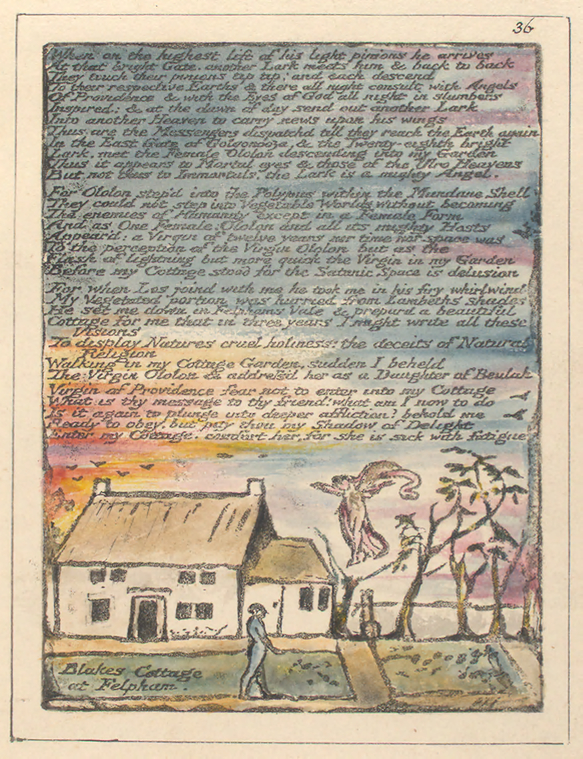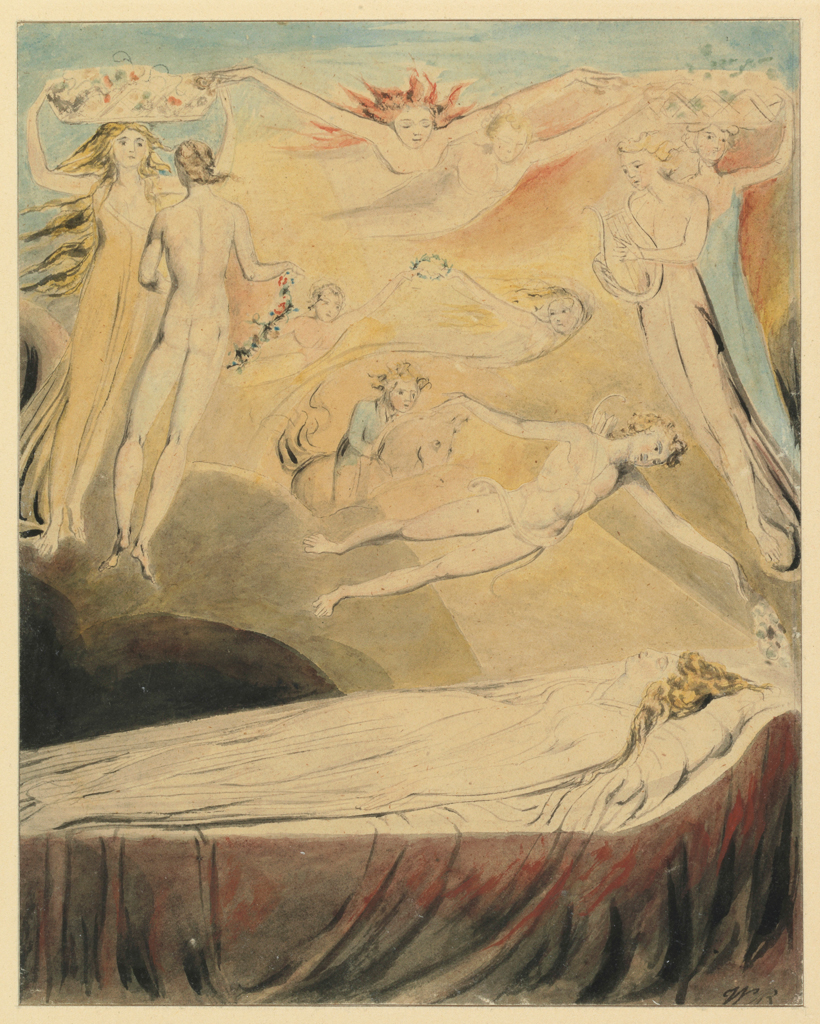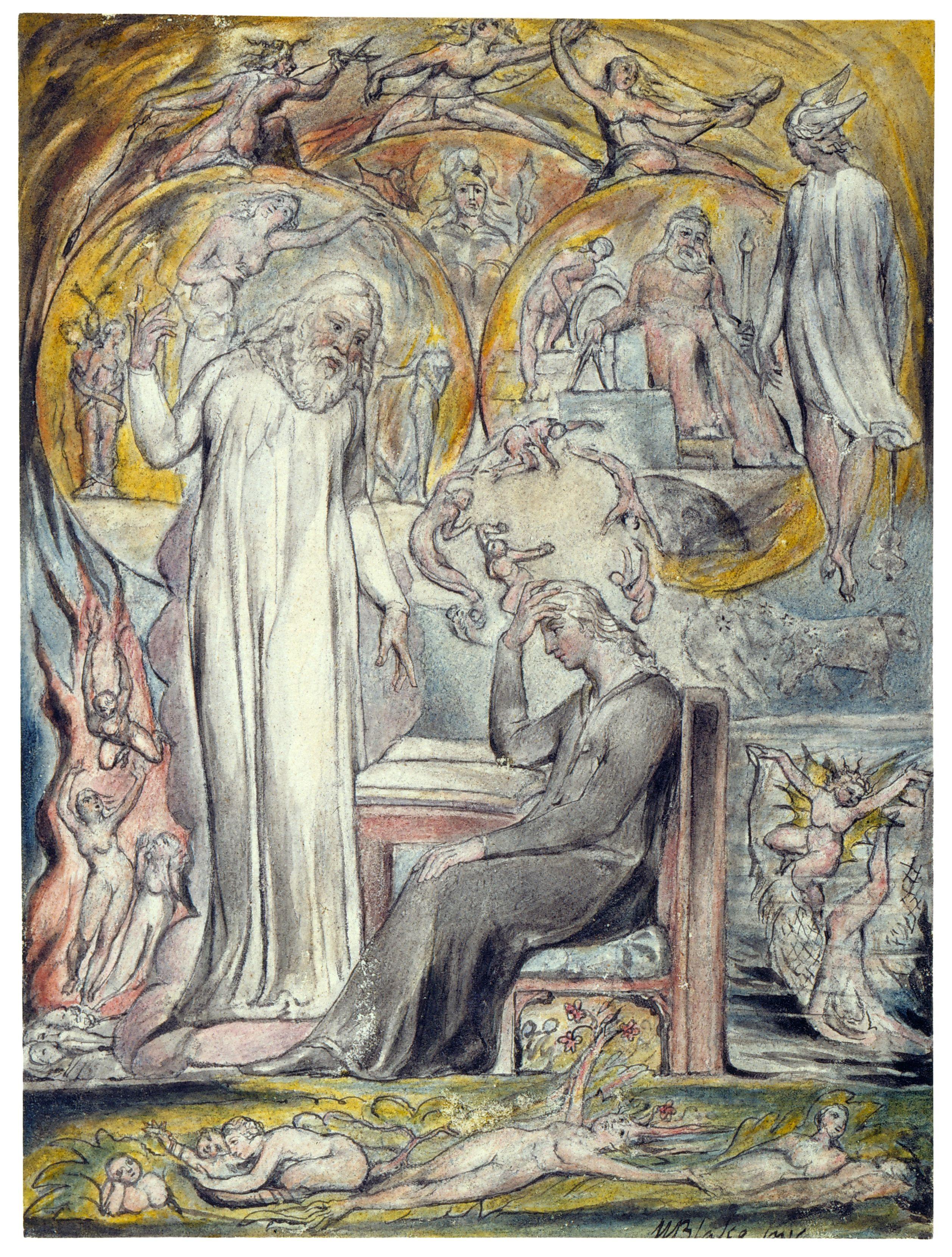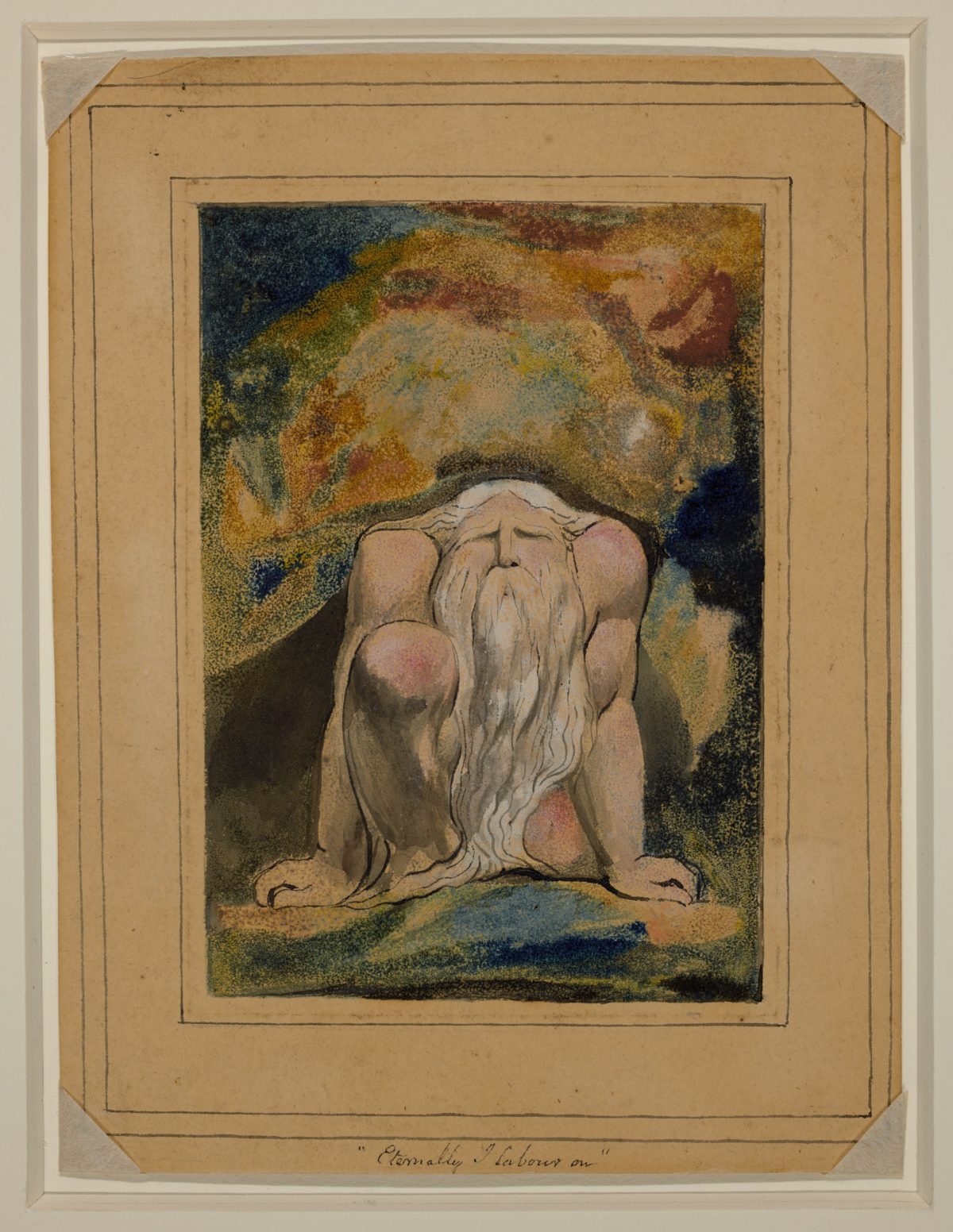 |
Victoria and Albert Museum Fall of Man |
Bloom began his book on English Romantic Poetry with a chapter on the background which formed its basis. The historic circumstances during which Romantic Poetry was written influenced the six men who are acknowledged as the major poets of the Romantic period: Blake, Wordsworth, Coleridge, Byron, Shelley and Keats. This was the historic period dominated by the spirit of revolution including the American Revolution, the French Revolution and the Napoleonic wars.
During the Romantic period England was undergoing a change from a agrarian society to one dominated by an industrial working class. There was concern among our poets for the misery generated by economic and social disruption. However Bloom atributes religious dissent, a common characteric of the six poets, to be a more important aspect which they held in common. Although each espressed his religious beliefs distinctively, they all were from the protestant nonconformist milieu. Each expressed in his poetry his "autonomous soul seeking its own salvation outside of and beyond the hierarchy of grace." (Page xviii)
Bloom points out that the Romantic interest in Creating and in Imagination are two of its distinguishing characteristics. Creating which had been associated primarily with the activity of God was extended to the activity of man in bringing forth means of expressing truth in poetry. The concept of the Imagination, which was routinely correlated with madness, became a means of trancending the restrictions of self-imposed constraints.
The Romantic period was innovative. It broke away from a time of tradition, orthodoxy, conformity. Its poetry was the expression of new ways of thinking, feeling, relating and believing. The diversity within the group of poets themselves was a clear indication that each perceived the world from the depths of his individual psyche.
As Bloom states "the Romantic assertion is not just an assertion; it is a metaphysic, a theory of history, and much more important than either of these, it is what all the Romantics - but Blake in particular - called a vision, a way of seeing, and of living a more human life." Page xxiii
Blake's Comments on the Poetry of William Wordsworth
Miscellaneous Prose, (E 698)
[Blake's Autograph in the Album of William Upcott]
"WILLIAM BLAKE one who is very much delighted with being in good Company Born 28 Novr 1757 in London & has died several times since January 16 1826 The above was written & the drawing annexed by the desire of Mr Leigh how far it is an Autograph is a Question I do not think an Artist can write an Autograph especially one who has Studied in the Florentine & Roman Schools as such an one will Consider what he is doing but an Autograph as I understand it, is Writ helter skelter like a hog upon a rope or a Man who walks without Considering whether he shall run against a Post or a House or a Horse or a Man & I am apt to believe that what is done without meaning is very different from that which a Man Does with his Thought & Mind & ought not to be Calld by the Same Name. I consider the Autograph of Mr Cruikshank which very justly stands first in the Book & that Beautiful Specimen of Writing by Mr Comfield & my own; as standing [in] the same Predicament they are in some measure Works of Art & not of Nature or Chance Heaven born the Soul a Heavenward Course must hold For what delights the Sense is False & Weak Beyond the Visible World she soars to Seek Ideal Form, The Universal Mold Michael Angelo. Sonnet as Translated by Mr Wordsworth
Annotations to Wordsworth, PREFACE [PAGE viii] (E 665)
WORDSWORTH: "The powers requisite for the production of
poetry are, first, those of observation and description. . . .
whether the things depicted be actually present to the senses, or
have a place only in the memory. . . . 2dly, Sensibility, . . ."
BLAKE: "One Power alone makes a Poet.-Imagination The Divine Vision" WORDSWORTH: To H. C. Six Years OldBLAKE: "This is all in the highest degree Imaginative & equal to any
Poet but not Superior I cannot think that Real Poets have any
competition None are greatest in the Kingdom of Heaven it is so
in Poetry" "Natural Objects always did & now do Weaken deaden &
obliterate Imagination in Me Wordsworth must know that what he
Writes Valuable is Not to be found in Nature Read Michael Angelos
Sonnet vol 2 p. 179 Michaelangelo
When first they met the placid light of thine,And my Soul felt her destiny divine,And hope of endless peace in me grew bold:Heaven-born, the Soul a heavenward course must hold;Beyond the visible world she soars to seek(For what delights the sense is false and weak)Ideal Form, the universal mould.The wise man, I affirm, can find no restIn that which perishes: nor will he lendHis heart to aught which doth on time depend.'Tis sense, unbridled will, and not true love.That kills the soul: love betters what is best,Even here below, but more in heaven above."
"It appears to me as if the last Paragraph beginning With "Is
it the result" Was writ by another hand & mind from the rest of
these Prefaces. Perhaps they are the opinions of Sr G Beaumont a
Landscape Painter Imagination is the Divine Vision not of The
World nor of Man nor from Man as he is a Natural Man but only as
he is a Spiritual Man Imagination has nothing to do with Memory"
Textural Notes (BY David V. Erdman for Pages 659-666) (E 887)
Annotations to Volume 1 of Poems including Lyrical Ballads...By William Wordsworth
"PAGE 375 opinions of . . . a Landscape Painter] The 'Landscape Painter' comes out in Wordsworth's contempt for poetry that 'does not contain a single new image of external nature' or evidence 'that the eye of the Poet had been steadily fixed upon his object' (paragraph 20) as well as in his faulting Macpherson for using imagery inappropriate to the actual 'Morven before his eyes' (p 364). The Preface, from p I on, assumes 'memory' to be the supplier of 'materials' for the production of poetry."










.jpg)